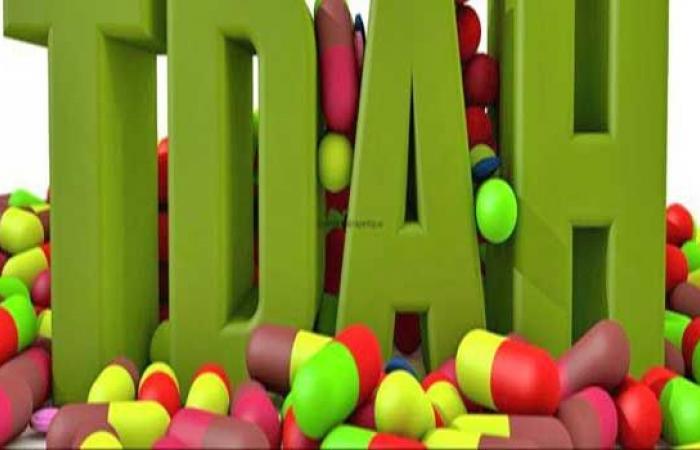A shortage of drugs is never trivial. It reveals choices, decisions, sometimes renunciations. She says a lot about the order of priorities, on the organization of a Health system, on its ability to protect the most vulnerable. The one in Morocco in terms of treatment of attention deficit disorder with or without hyperactivity (ADHD) is a worrying illustration. For several months, the country’s pharmacies have faced a total absence of these drugs. A therapeutic silence has settled. And behind this silence, it is children who vacillate, families who are exhausted and a policy of the drug which, once again, shows its faults.
ADHD, long ignored or sub-diagnosed, is now recognized as a neurological disorder with serious consequences, especially in children and adolescents. It impacts concentration, organization, emotional management, and often, education or social integration. In recent years, diagnoses have multiplied, in part thanks to better awareness and clinical advances, but also because of social upheavals that exacerbate anxiety, agitation and the difficulty to adapt.
However, even though needs increase, pharmacological treatments validated for ADHD become not found. The most commonly prescribed drugs for these disorders – two mainly on the Moroccan market – have disappeared from the circuits.
This break is neither cyclical nor purely logistical. It results from a combination of structural factors: total importing on importation, a market perceived as too limited to justify a distribution effort and an import authorization system, the narrowness of which is a rapid response.
What is at stake here far exceeds a question of supply and demand. It is the capacity of a State to guarantee the continuity of access to so -called “non -profitable” drugs. Because if these treatments are rare, it is not due to an absence of medical need but because, in the logic of the international pharmaceutical market, their production does not offer sufficient margins. In other words, these drugs have not disappeared because they are useless, but because they do not report much.
This reality explodes a dilemma that health policies often avoid assuming publicly: that of the conflict between public health and logic of profit. In a deregulated market, it is frequent pathologies and mass treatments that structure flows. Diseases with low prevalence or supervised treatment, such as ADHD, are mechanically marginalized. Their survival in the distribution circuits then depends on the will of the States to take over where the market withdraws.
Morocco is not without tools. It can, as it has done for other sensitive pathologies, intervene directly to constitute strategic stocks, subsidize certain drugs or facilitate their importation by softening administrative procedures. Nothing, legally, prevents him from acting. But in the absence of a clear framing, a strong political signal and a structured mechanism of response to ruptures, this type of shortage will happen again.
-Because the problem is not punctual. It is systemic. It reveals both the absence of a national policy dedicated to orphaned drugs and the limits of a regulation system still too rigid to anticipate the weaknesses of the world channels. The scarcity of import authorizations, the concentration in the hands of a very limited number of distributors, the slowness of alert and compensation mechanisms: everything contributes to transforming an imbalance into a lasting crisis.
In this context, the public response is long overdue. No specific plan has been communicated, no reserve stock has been activated, and the health professionals themselves struggle to obtain reliable information on the replenishment times.
Meanwhile, the children concerned cannot wait. The discontinuity of drug treatment, in cases where it is prescribed, seriously compromises the progress made and often aggravates symptoms. For families, already faced with demanding daily support, the absence of a pharmacological solution adds one more tension, a feeling of abandonment, sometimes deaf anger. The promise of the right to health comes up against the reality of the void here.
It would be just as irresponsible to reduce this problem to a fatality linked to pharmaceutical globalization. Other countries, faced with the same challenges, have been able to set up specific policies to guarantee access to so -called “unattractive” drugs on the commercial level. It is not a question of reinventing the impossible, but of applying a simple requirement: that of processing essential drugs as such, whatever their cost, their frequency of use or their position on the profitability grids.
For many specialists, only one answer seems tenable: a proactive intervention of the government. It is not only a question of importing a few more boxes, but of creating a strategic supply system, with safety stocks, conventions with laboratories holding authorizations, and a revision of import conditions for drugs deemed essential. Other treatments relating to rare diseases have already been able to benefit from such a mobilization. Why not those of ADHD?
To act now is to avoid that this shortage becomes a precedent. It is to say, in fact, that the right to treatment does not stop at profitability. And it is to recall that the role of a Ministry of Health is not only to administer the flows, but to guarantee, actively, that medicine never becomes a luxury of importation.
Mehdi Ouassat








